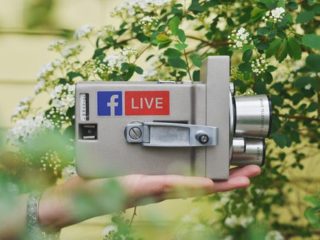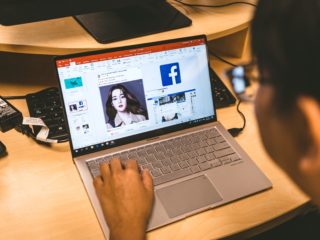What do people do when Facebook goes down?
Can we cope without Facebook? When the network went dark on 13th March (and Instagram and WhatsApp also suffered from service outages) we looked at how people behaved.
First, let’s look at how we use the main networks. When Manifest researched social media habits in 2018, it found that 72% of respondents used social media multiple times a day. Eighty-two per cent used Facebook, 75% used YouTube, and 53% used Instagram at least once per week. More than 35% of respondents used Snapchat, Pinterest and Twitter at least once a week as well.
So while Facebook is still the most important network for many of us, we have other options, even during a blackout:

Moving to other social networks
We use different networks for different things. Twitter is great for sharing news and getting involved in conversations with strangers (hello #FacebookDown). Snapchat and TikTok can fulfil our need to share micro-videos and images with friends.
The biggest winner was probably encrypted messaging app, Telegram, which reported three million new accounts created in the 24 hours that Facebook, Instagram and WhatsApp were offline, or had problems.
Finding other sites
Some people found another site to fill the void: PornHub. When Facebook traffic went down, Pornhub traffic went up (a reported 11%). Slightly strangely, some people used Pornhub as a search engine to look for their social media sites, searching for ‘Instagram’ (searches up 323%) and ‘Facebook’ (searches up 221%). Analytics site, Chartbeat reported a 3 to 5% increase in traffic to news sites.
There might be a darker reason for this than meets the eye. Searches for social networks on Pornhub can turn up some interesting profiles of people soliciting webcam sex, using (often innocuous-looking, at least at first glance) social profiles as a lure. Perhaps this switch to Pornhub highlights the reality that there’s a subset of social media use that’s a lot less innocent than it seems.
Spending more time offline (but being less informed about news)
Bloomberg summarised the findings of a study into what people do if they stay off Facebook, conducted by economists from Stanford and New York University.
The study paid people to stay off Facebook for four weeks. Around 90% of them succeeded, and used the time to do more things offline in the hour a day they took back. But they were also less informed about news – on average, they spent 15% less time reading/watching news.
How do we feel about being forced off Facebook?
When Facebook’s servers crash, its users are suddenly plunged into a Facebookless existence.

It’s especially hard for those people who depend on Facebook for their business.


And what did Facebook do? It turned to Twitter to tell the world the outage was down to a change in server configuration: “Yesterday, as a result of a server configuration change, many people had trouble accessing our apps and services. We’ve now resolved the issues and our systems are recovering. We’re very sorry for the inconvenience and appreciate everyone’s patience.”
It seems we can all still communicate on different channels when our favourite networks fail us.






Leave a Reply